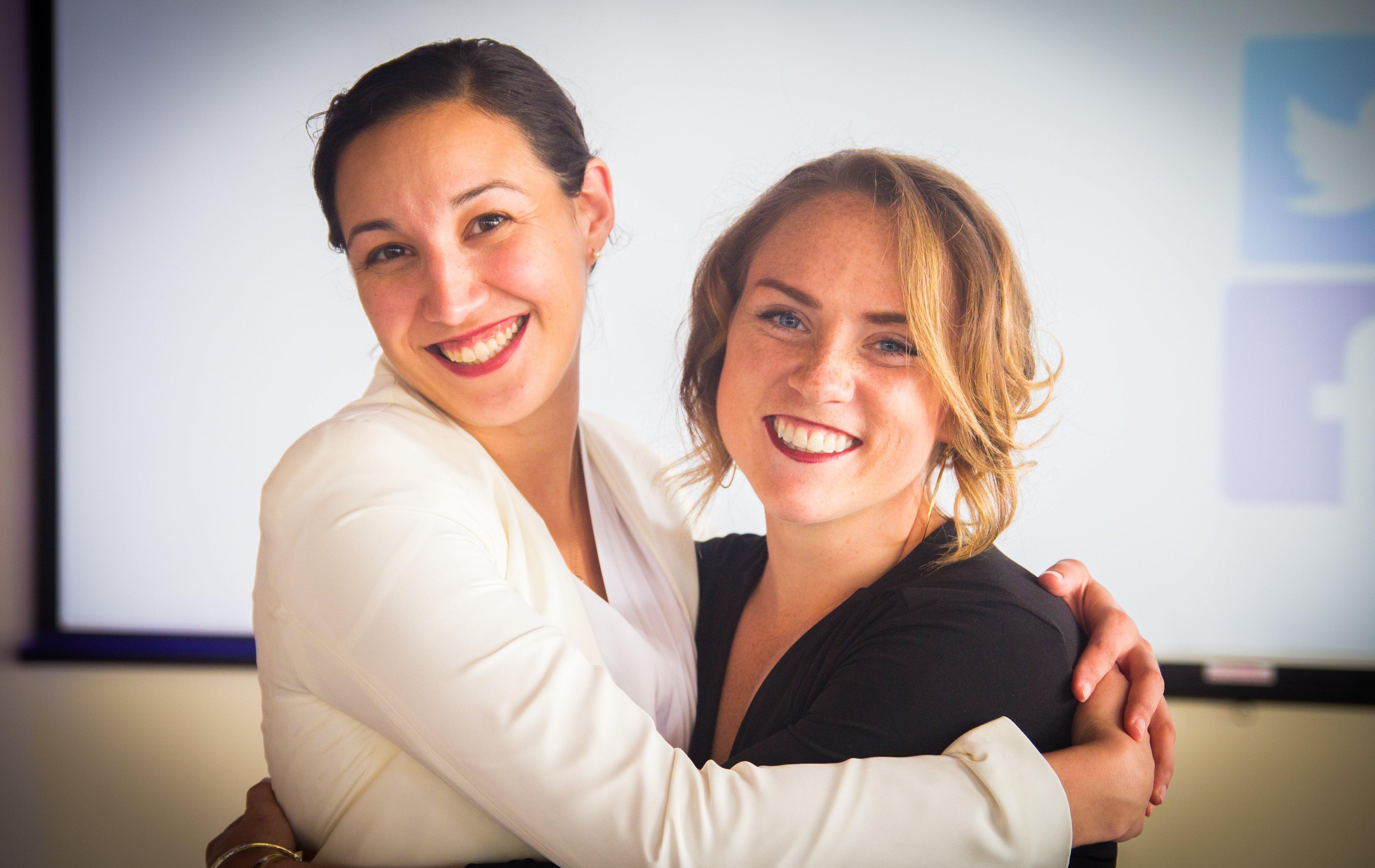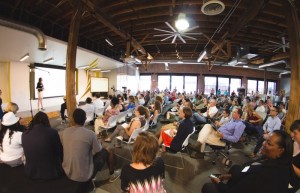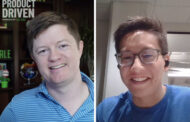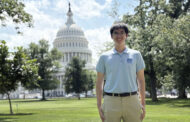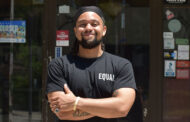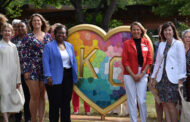Editor’s note: Katie Boody is a co-founder of The Lean Lab, a Kansas City-based education incubator that helps educators create and implement innovative ideas in schools to help students. The Lean Lab co-founder Carrie Markel contributed to this piece. Opinions expressed in this commentary are the author’s alone.
Both the schools I taught at are dead.
The first school — C.A. Franklin — closed after my second year teaching. The building still stands in an urban core neighborhood on the East side of Kansas City. It stands empty. The grounds are overgrown, the playground rusty, the classrooms abandoned.
After 42 years of operation, the windowless building spends its days silent. Like many of our city’s desolate school buildings, it remains sealed, mothballed; a relic of glory days forgotten.
I drive by the site of the second school — Alta Vista — on the way to my new office. Built in the early 1990s as a temporary office site, the building was retrofitted to become an early childhood center. In 2010, we re-purposed it again to become a middle school.
The building has now been torn down. Alta Vista Middle relocated to a new and better location and just celebrated its first class graduating from the high school. But the old building, surrounded by the new Performing Arts Center and the hip Crossroads arts neighborhood, was flattened into a pile of rebar and redbrick in less than one day.
Flashback to 2008 …
For five years, I teach middle school math at these two buildings.
Each day goes like this:
Sometime between 5 and 6 a.m. I awake, afraid of being late.
The lesson plans are not completely finished. The quizzes are not all graded, logged and tracked. In the shower, I remember Marcelo is coming in early to retake a test, and Lucia’s mom wants to talk about an altercation that happened in class yesterday.
I drive to school. I find that the copy machine is broken. My classroom’s LCD projector bulb is flickering.
The kids are queuing outside my classroom door. I play 28 versus one for seven hours straight.
I break to eat cafeteria leftovers while hovering over the indefinitely-broken copy machine, seeking the root cause of a paper jam.
During class, kids blankly stare while I play with different vocal intonations in an attempt to make the plotting of rational numbers on a paper number line palatable, even compelling.
I talk for too long. I get mad at my students when they begin to talk over my too-long talking. The bell rings.
At worst, the learning target will be completely lost. At best, my students will be able to demonstrate mastery (80 percent) of a rote skill, as indicated by filling in the correct bubble on the end-of-class quiz.
Later, I will sit in staff meetings where we’ll talk more, but instead of talking at each other, we’ll talk in circles.
In a few ____________ my students will take a standardized test. The test will always be a moving target.
A) Hours
B) Days
C) Weeks
D) Months
E) Years
The Test will dictate the trajectory of ____________ self worth.
A) Their
B) My
C) Life’s
D) All of the above
I will sit down at the end of the day, pour over my students’ work and realize that I’m horribly unable to meet their needs. Their writing is uninspired, even nonsensical; their math calculations inaccurate; their reading levels demonstrate huge, gaping learning deficits that will, in fact, prevent them from taking advantage of many of modern life’s opportunities. Most of this is because they’ve spent their lives in under-resourced, under-performing schools. Most of this is because they were born in that zip code, born with that skin color or that native language.
And frustrated, but committed, I will kick off my shoes late in the evening, alone in my classroom, and get to work on the ____________ in a desperate attempt to turn it all around.
A) Seating Chart
B) Tutoring Hours
C) Parent Phone Calls
D) Behavioral System
E) All of the above
Maybe if I were more ____________, I could better ____________ my students to become creative, autonomous, eloquent beings capable of taking on societal injustices, emerging technologies and the future of humanity.
A) Engaging, teach
B) Thoughtful, empower
C) Emotive, transform
D) Rested, inspire
E) Organized, equip
F) All of the above
Finally, at a client dinner put on by my boyfriend’s office, they’ll turn to me and ask what I do. And after telling them I am a teacher, they’ll respond with, “That’s so nice.”
And I will feel____________.
A) Demeaned
B) De-professionalized
C) Less Than
D) All of the above
They don’t know the realities of school. That despite herculean efforts, I end each day feeling incapable of making the real changes required to truly meet my kids’ needs. Instead, I am an underpaid, undervalued Sisyphus, and will wake up tomorrow — between 5 and 6 a.m. — pushing the impossible boulder up the mountain, only to have it fall again and again.
During the summer, the building stands empty as the test data rolls in. In raw CSV files and in packets collated by the state’s education department, we — the leadership team that I’m now a part of — hover in carpeted back offices under florescent lights searching for hope in the form of Excel cells labeling students as “proficient” or “advanced.”
The analysis then begins: What teacher did they have? What assessments does she use? How does she manage her classroom? What can we learn? What can we codify? What can we scale?
Decidedly, we’ll alter the bell schedule, launch new curriculum, create a more rigorous professional development program. We’ll defend these efforts. We say aloud that these efforts are certain to work. The data says so.
Secretly, we all know they won’t. Not well enough.
Meanwhile, in an old Westside Kansas City home, I’ve begun gathering friends and acquaintances over brunch. It’s an unlikely group: cops, teachers, social workers, artists and parents. We come together to acknowledge that the way we’ve been approaching education — the traditional school model — isn’t working.
Instead, we envision a Kansas City known for vibrant and invigorating educational opportunities. A Kansas City with exceptional, transformational schools. We share research, stories, ideas and recipes for quiche.
We gather to build something together.
Come Mondays, I go back to work. I mentally replay the brunch conversations. I ruminate on the freshness of others’ insights, the hope in their ideas. I long for their perspectives to be present while I sit at the confines of our school building, alone at my desk.
And I wonder: who else has radical ideas to transform teaching and learning?
I begin to obsess.
I conduct more than 60 one-on-one coffee meetings with anyone. Those with insights, opinions or influence in our school system. Principals, parents, community leaders, students, education nonprofit leaders. We meet huddled over coffee cups in cafes, district offices, school sites, churches. Often, we lean in closely, talking in hushed, hurried tones like disgruntled corporate employees exchanging lunchtime gossip.
I’m searching for common trends, themes.
Consistently, people feel that they’ve been wronged and have a sense of victimhood when it comes to their school experiences. A feeling of being “done-to, versus “done-with.”
I hear stories of neighborhood school closures, superintendent turnover, reluctant administrators, testing fatigue, teacher burnout, un-returned parent phone calls and students’ unmet needs.
There’s this palpable feeling that invisible forces are in control of our students’ futures, and all we can do is adapt.
Yet, despite all of this, somehow, not one has lost hope.
And, if I am lucky, my coffee date leans in a little closer and starts speaking faster.
“A few friends of mine, we once thought of starting something. An after school program. A community center. A whole school. Something different.”
Fast forward to 2016 …
Nowadays, I work with educators and entrepreneurs for the organization I helped found, The Lean Lab. Specifically, I work with folks who have early stage ideas for new education innovations: an app that streamlines grading, a new school model that prioritizes culturally-responsive curriculum, a bus that brings science experiences to schools. These education entrepreneurs spend four weeks in the summer, supported with resources and mentorship as they build new solutions that aim to redefine public education.
At the end of the four weeks they pitch to a big, cheering crowd of educators, entrepreneurs and community stakeholders.
The rest of the year The Lean Lab hosts events with the goal of giving teachers, parents and students access to a professional network and an empathetic support group of other creative thinkers.
I’m very aware that this is perhaps another feeble attempt. I still wind up late in the evening alone, kicking off my shoes, wondering what to do tomorrow. My work now could be akin to another seating chart, parent phone call, tutoring session or sticker chart. Every morning, I still feel like there’s a boulder I need to roll uphill.
The future may be uncertain, but the present is hopeful.
This year, five new schools are slated to open, resurrecting vacant, empty spaces.
These days, instead of searching for the root cause of classroom-level problems, we work with whole communities to reimagine entire systems and approaches to education.
Instead of searching CSV files for hope and scalable practices, we work with education idealists retooling their concepts, giving them the guidance and resources to scale their ideas.
We count on a robust community. They are a community of:
- Teachers and administrators from every school district and many charter schools in Kansas City metro region.
- Nonprofit professionals from Teach For America all the way to Turn the Page.
- Parents from all backgrounds, neighborhoods and race.
- Architects from BNIM, Hollis and Miller, and many more who inspire innovation principles.
- Entrepreneurs and founders from ed tech companies like Netchemia, myEdmatch, TapTeach and more.
- Entrepreneur-friendly community builders, such as the Kansas City Startup Village, Sprint Accelerator and Think Big partners.
- Directors, strategists and philanthropists from VML, iiM, the Kauffman Foundation, the Greater Kansas City Community Foundation, and so on.
- A national network of education innovators, from 4.0 Schools to Reframe Labs, who are committed to reimagining the future of schools
This year, we can say the time is now. We will brace ourselves to commit to a radically imaginative vision of school. We will leverage the assets of our people and our community. We will break the confines of the bell schedule, the copy machine, the four walls — and we will build the future of Kansas City schools. Together.



